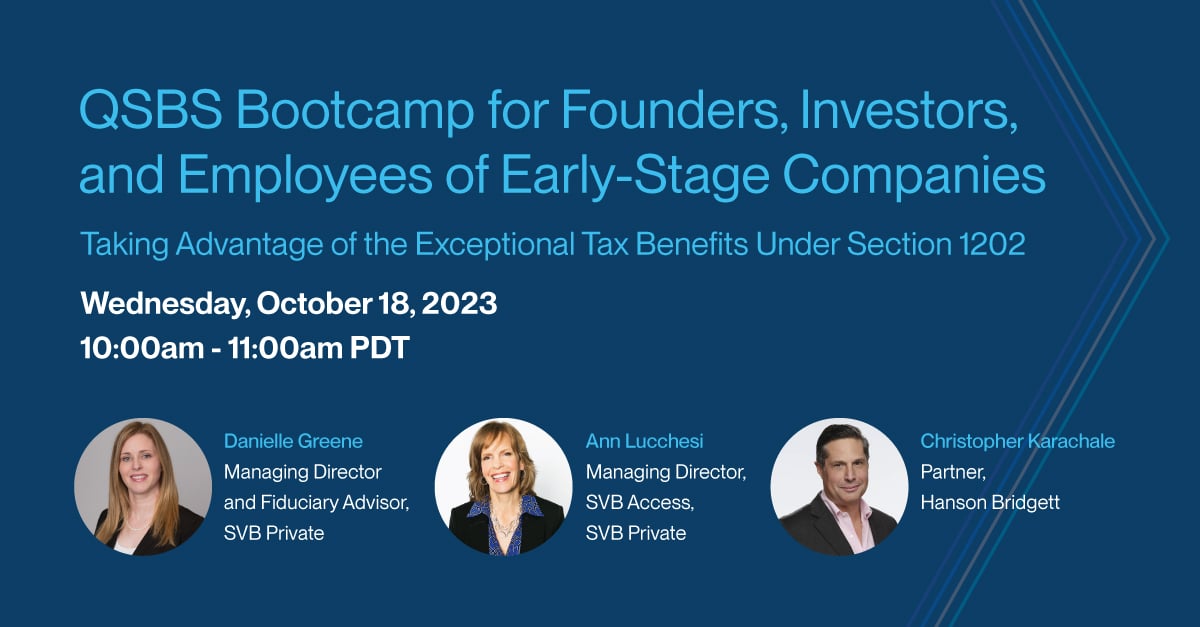We’re pleased to provide you with insights like these from Boston Private. Boston Private is now an SVB company. Together we’re well positioned to offer you the service, understanding, guidance and solutions to help you discover opportunities and build wealth – now and in the future.
Good tax planning includes good recordkeeping.
Tax planning should happen all year long, not just when you are getting ready to file your tax return. An important part of tax planning is good recordkeeping. Well-organized and complete records make it easier for the taxpayer and the tax preparer to ensure the tax preparation and filing process is efficient and effective. Good records are also essential if your return is selected for examination and/or if you receive an IRS notice.
Here are some suggestions to help you keep good records:
- Develop a system. You can use a software program for electronic recordkeeping or store documents in labeled folders to keep all of your important info together.
- Add records as you go. Keeping up-to-date with your files and receipts makes tax preparation much easier.
- Make changes known. To avoid a delay in processing your tax return, notify the IRS if your address changes, or the Social Security Administration if you have a legal name change.
- Keep a paper trail. Your records should include: receipts, canceled checks, and other documents that support income, a deduction, or a credit on a tax return and property records if you buy or sell a house to determine a gain or loss.
- Hold on to your records. In general, the IRS suggests that you keep records for three years from the date you filed the return.
- Be smart about business taxes. Whatever method you use for bookkeeping, make sure that it clearly and accurately reflects your gross income and expenses. If you have employees, you must keep all employment tax records for at least four years after the tax is due or paid, whichever is later.
Tax planning includes determining your filing status.
Single or married? Kids or no kids? These are just a couple of questions that will help you determine you tax-filing status. Taxpayers usually only think about their filing status when filing their returns. However, this is something to think about all year, especially if it changes.
Your filing status is used to determine your:
- Filing requirements
- Standard deduction
- Eligibility for certain credits
- Correct amount of tax
Changes to family life may affect your tax situation. These changes include:
- Marriage
- Divorce
- Birth of a new baby
- Adoption of a child
- Death
Typically, your status on December 31st applies to the entire year for tax purposes. For example, if you get married late in the year, for tax purposes, you’re considered married for the entire year.
Reviewing your eligibility for credits and deductions.
Tax credits and deductions can mean more money in your pocket. Here are a few facts about credits and deductions that can help you with your year-round tax planning:
- Taxable income is what’s left over after you subtract any eligible deductions from your adjusted gross income. This includes the standard deduction. In fact, most individual taxpayers take the standard deduction. On the other hand, some taxpayers may choose to itemize their deductions because it could lower their AGI even more.
- The Tax Cuts and Jobs Act made changes to itemized deductions. If you formerly itemized, you may find it more beneficial to take the standard deduction.
- As a general rule, if your itemized deductions are larger than your standard deduction, you should itemize. In some cases, taxpayers may even be required to itemize.
- You can subtract tax credits from the total amount of tax you owe. To claim a credit, you should keep records that show your eligibility.
- Here are a few examples of credits that may benefit you:
- Parents may qualify for credits like the child tax credit and child and dependent care credit.
- Families with students may qualify for the American opportunity tax credit or lifetime learning credit.
- Low-to-moderate income taxpayers may qualify for the earned income tax credit.
Properly claiming these tax credits, can reduce taxes owed and boost refunds. You can check now to see if you qualify to claim a tax credit next year on your return. Some tax credits, like the EITC, are even refundable, which means you can get money refunded even if you don’t owe any taxes.














